Karens and White Privilege: Unpacking Entitlement & Injustice
Category: Social Issues
Understanding the Entwined Realities of Karens and White Privilege
If you’ve found your way here, chances are you’re already aware of the cultural phenomenon of "Karens"—the often entitled, disruptive individuals whose actions spotlight systemic inequalities. But perhaps you’re wrestling with understanding how this behavior connects directly to white privilege and broader social justice issues. You might be someone deeply concerned about fairness and equity, trying to decode how everyday moments of injustice are fueled by unconscious or overt entitlement. Or maybe you’ve witnessed a disturbing 'Karen' moment and wondered why such attitudes persist despite progress in social awareness.
This post doesn't just rehash viral encounters. Instead, it dives deeply into the roots of entitlement culture, exploring how Karen behavior exemplifies and perpetuates white privilege. It’s crafted for readers who want a clear, critical perspective—whether you’re an activist, educator, or simply a socially conscious observer tired of surface-level takes. Our analysis will guide you through the cultural attitudes framing this disruptive behavior, unpack the psychological and social factors at play, and offer a nuanced understanding of the systemic injustices hiding behind individual acts.
Read on to uncover how entitlement becomes a symptom of ingrained privilege, triggering real harm in communities across the country, and why dismantling these patterns is essential for true equity.
- Understanding the Entwined Realities of Karens and White Privilege
- Defining ‘Karen’: Origins, Evolution, and Cultural Impact
- White Privilege Explained: What It Means and Why It Matters
- How ‘Karen’ Behavior Exemplifies White Privilege
- The Psychological Drivers Behind Entitlement and Disruptive Behavior
- Karens and Social Justice: The Amplification of Inequality Through Microaggressions and Public Outbursts
- The Role of Media and Social Networks in Perpetuating the Karen Stereotype and White Privilege Discourse
- Real-Life Consequences of Karen Entitlement on Communities of Color
- Strategies for Addressing and Mitigating Karen Behavior Rooted in Privilege
- Why Awareness Alone Isn’t Enough: Moving Beyond Labeling Toward Systemic Change
- Empowering Bystanders: How Witnesses Can Effectively Intervene and Support Equity
Defining ‘Karen’: Origins, Evolution, and Cultural Impact
The term “Karen” has evolved from a simple internet meme to a powerful cultural symbol representing a specific type of entitlement often intertwined with white privilege. While its exact origin is debated, the name gained traction in the early 2010s on social media platforms like Reddit and Twitter, initially used to describe a stereotypical middle-aged white woman perceived as demanding and out-of-touch. Over time, the “Karen” archetype expanded beyond mere annoyance to symbolize a woman leveraging racial and social privilege to assert dominance, often at the expense of marginalized groups.
Origins and Evolution
- Early Internet Usage: Initially, “Karen” was a punchline for irritating behaviors, such as complaining to managers or making unreasonable requests.
- Viral Incidents: High-profile viral videos showing white women calling the police or security on Black people or other minorities popularized the term as shorthand for racialized entitlement.
- Cultural Solidification: Today, “Karen” encapsulates more than just disruptive behavior—it highlights a distinct pattern of individuals capitalizing on systemic advantages related to race, class, and gender.
Why ‘Karen’ Symbolizes White Privilege
The cultural impact of the “Karen” label lies in its embodiment of a unique intersection of entitlement and racial bias. These individuals often:
- Invoke authority figures—like police or management—to enforce personal biases.
- Dismiss concerns of others, particularly from people of color, with impunity.
- Exercise privilege unknowingly, assuming societal norms will protect their interests without consequence.
By understanding the origins and growth of the term “Karen,” it becomes clear that the phenomenon is not merely about individual rudeness but reflects a broader pattern of entrenched privilege that perpetuates systemic injustice. Recognizing these dynamics is crucial for addressing the underlying issues rather than just the symptoms of entitlement culture.
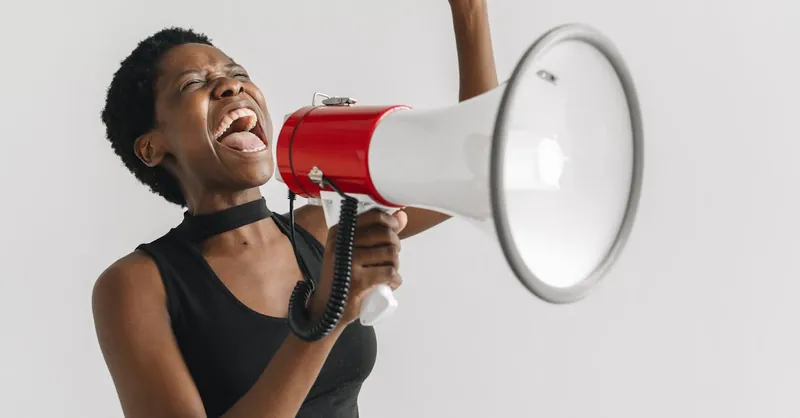
Image courtesy of Polina Tankilevitch
White Privilege Explained: What It Means and Why It Matters
To truly grasp the connection between Karens and entitlement, we must first understand white privilege—a foundational concept revealing how unearned advantages operate invisibly in everyday life. White privilege refers to the systemic benefits and social advantages that white people experience solely due to their race in societies structured by racial hierarchies. These advantages are often so normalized that they go unnoticed by those who benefit from them, yet they have profound impacts on who receives fairness, respect, and freedom from suspicion or harm.
How White Privilege Manifests Daily
White privilege doesn’t necessarily mean an absence of hardship but rather that one's skin color is not a source of disadvantage or added burden. In real-world terms, this can look like:
- Feeling safe in public spaces without fear of racial profiling or harassment.
- Having one’s concerns taken seriously by authorities rather than dismissed as suspicious or unfounded.
- Access to social and institutional networks built historically around whiteness, facilitating easier job prospects, housing, and education.
- Not being stereotyped or scapegoated based on race when asserting rights or making complaints.
The Intersection of Individual Behavior and Systemic Advantage
Karens embody how white privilege becomes weaponized in individual encounters—asserting dominance not only through entitlement but by leveraging existing social structures that prioritize whiteness. When a Karen calls the police on a Black person exercising their right to be in a public place, they are exploiting white privilege by activating law enforcement systems historically biased against marginalized communities. This is not just rude behavior—it is the reenactment of larger patterns of racial injustice sustained through everyday actions.
Understanding white privilege is critical because it reveals:
- Why some people’s voices carry more weight in public and institutional settings.
- How entitlement is often an unconscious expression of systemic power rather than isolated personal failing.
- The importance of awareness and responsibility in dismantling unjust social norms that enable such behaviors to flourish.
In recognizing white privilege, we begin to see how the seemingly trivial disruptions caused by Karens are, in fact, part of a broader system of inequity that demands conscious challenge and change.
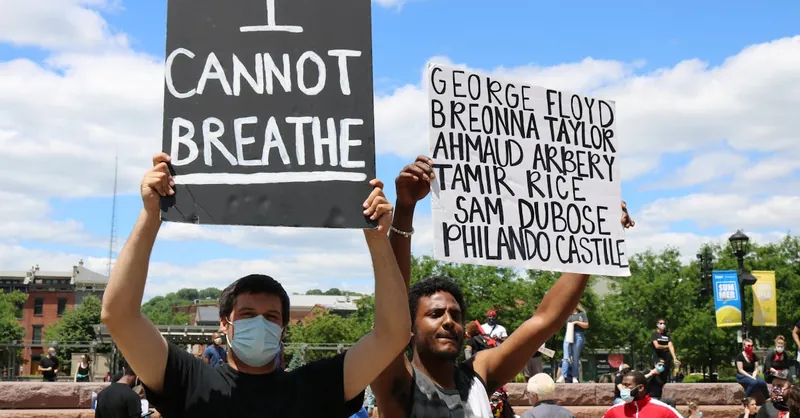
Image courtesy of Doris Pulliam
How ‘Karen’ Behavior Exemplifies White Privilege
Karen behavior is far more than mere rudeness or social awkwardness—it serves as a vivid example of white privilege in action, where entitlement reflects and reinforces systemic racial inequities. When Karens weaponize their position as white individuals in society, their actions gain dangerous power by tapping into existing systems designed to uphold racial hierarchies. This is why a Karen calling the police on a Black person for innocuous behaviors is not simply an isolated episode of bad manners—it is a deliberate activation of institutional bias rooted in white supremacy.
Specific Examples Highlighting the Intersection of Karen Entitlement and White Privilege
-
Calling Law Enforcement on People of Color for Everyday Activities
When Karens contact the police over minor or nonexistent “threats,” they exploit the disproportionate impact of policing on marginalized communities. The presumption that their complaint demands urgent response reflects an unearned authority accorded by racial privilege. Consequently, their actions can lead to criminalization, violence, or even death for innocent people—a direct manifestation of systemic injustice. -
Demanding Special Treatment in Public Spaces
Karens often insist on preferential treatment—whether insisting on skipping queues, refusing masks during public health crises, or demanding accommodations not extended to others. These acts mirror a societal expectation that their needs supersede those of people of color or lower socioeconomic status, demonstrating how entitlement is embedded in racial and class privilege. -
Dismissing or Invalidating Experiences of Marginalized Groups
By ignoring or undermining the concerns of minorities—whether about racism, discrimination, or inequality—Karens reinforce the invisibility of marginalized voices in social and institutional dialogues. This dismissal perpetuates a cycle where privilege maintains its grip by silencing dissent and resisting accountability.
White Privilege Enables Karen Behavior to Inflict Real Harm
The significance of Karen behavior lies in its capacity to weaponize white privilege—using social codes, authority structures, and cultural assumptions to impose control over marginalized individuals. These encounters are often recorded, viral, and visible, making them emblematic examples of how seemingly mundane acts contribute to maintaining systemic racial injustice.
Recognizing these dynamics is essential for dismantling entitlement culture because:
- It shifts focus from blaming individuals alone to exposing the societal frameworks that empower them.
- It highlights the urgent need for institutions, especially law enforcement and public services, to address implicit racial biases that allow Karen complaints to escalate disproportionately.
- It demands a cultural reckoning on how white entitlement, when unchecked, perpetuates cycles of fear, exclusion, and inequality.
Ultimately, understanding how Karen actions are entwined with white privilege is a critical step in exposing the systemic roots of injustice disguised as everyday disputes—turning viral moments into catalysts for meaningful social change.
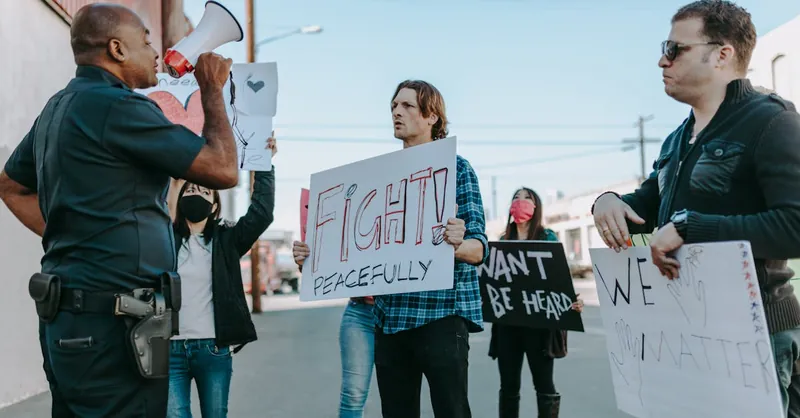
Image courtesy of RDNE Stock project
The Psychological Drivers Behind Entitlement and Disruptive Behavior
To fully comprehend why Karen behavior persists and flourishes, it’s crucial to explore the psychological mechanisms fueling entitlement and disruptive actions. At the core lie cognitive biases, deep-seated fears of losing privilege, and social conditioning that collectively reinforce a sense of invulnerability and superiority among those who exhibit these behaviors. Understanding these factors reveals how entitlement is not random but rooted in complex mental frameworks that perpetuate white privilege through everyday interactions.
Cognitive Biases: The Invisible Forces Reinforcing Entitlement
Karens often act out of unconscious mental shortcuts that distort perception of fairness and threat. Key biases include:
-
Confirmation Bias
This leads individuals to seek information that validates their pre-existing beliefs—such as assuming others are troublemakers or that their grievances are always justified—while dismissing contradictory evidence. This bias fuels the false narrative that their demands must be met at all costs. -
Ingroup Bias
Favoring members of one’s own racial or social group subconsciously elevates their interests above others’. When Karens show hostility toward minorities, it often stems from an ingrained preference for maintaining their status and comfort within their perceived social “ingroup.” -
Fundamental Attribution Error
Karens are likely to attribute others’ behaviors to character flaws rather than situational factors, interpreting harmless actions as deliberate disrespect or threat. This distortion intensifies confrontational responses that escalate incidents unnecessarily.
Fear of Losing Privilege: Anxiety Driving Defensive Entitlement
At a deeper emotional level, many Karens may experience a threat response triggered by perceived loss of social dominance or control. This fear is not always overtly acknowledged but manifests as rigid insistence on maintaining preferential treatment and exclusivity. When societal progress challenges traditional power hierarchies, such as growing calls for racial equality, these individuals react defensively—often aggressively—to protect their unearned advantages. This defensive entitlement is a psychological attempt to preserve comfort zones benefiting from historical and systemic inequality.
Social Conditioning: Normalizing Entitlement Through Culture and Upbringing
Entitlement behavior does not emerge in isolation but is learned and reinforced through social environments that reward privilege and dismiss accountability. Some contributing factors include:
- Cultural Narratives of Superiority: Media and societal messaging that normalize white dominance and center whiteness as the default experience reinforce entitlement as an acceptable means of asserting power.
- Lack of Consequences: When entitlement goes unchecked, especially in institutional settings, it emboldens individuals to escalate disruptive behaviors without fear of reprimand.
- Modeling and Social Reinforcement: Families, peer groups, and communities may inadvertently validate Karen-like entitlement by excusing or even praising confrontational and selfish behaviors tied to privilege.
The Intersection of Psychology and Systemic Privilege
These psychological drivers intersect with systemic white privilege to create a potent cycle: cognitive biases distort reality to justify entitlement, fear of losing advantage triggers protective aggression, and social conditioning perpetuates these attitudes over time. Together, they explain why Karen behavior is not merely individual rudeness but part of a broader, self-reinforcing pattern rooted in racial and social hierarchies.
Recognizing these psychological underpinnings is vital for dismantling entitlement culture because it shifts the focus toward addressing the mental and emotional foundations of white privilege—not just its outward expressions. This insight opens the door for more effective interventions aimed at fostering empathy, accountability, and social awareness in combating disruptive and unjust behaviors linked to the Karen phenomenon.

Image courtesy of RDNE Stock project
Karens and Social Justice: The Amplification of Inequality Through Microaggressions and Public Outbursts
Karen behavior frequently acts as a catalyst for reinforcing social disparities, particularly through their disproportionate impact on marginalized communities. These incidents often manifest in microaggressions, public shaming, and unnecessary calls to authority figures, all of which serve to maintain and amplify systemic inequalities rooted in white privilege. Far from being isolated moments of rudeness, Karen outbursts are a form of policing social spaces—asserting control by invalidating the rights and dignity of others, especially people of color.
The Role of Microaggressions and Public Policing in Maintaining Inequality
Microaggressions embedded in Karen interactions subtly undermine marginalized individuals by:
-
Questioning legitimacy and belonging
Whether it’s a Karen scrutinizing a Black person’s presence in a neighborhood or a customer challenging a service worker’s competence, these small but pervasive acts communicate exclusion and reinforce social hierarchies. -
Calling authorities unnecessarily
The hallmark of many Karen encounters is summoning police or managers over non-threatening situations. This behavior weaponizes institutional power against vulnerable groups, often escalating circumstances unnecessarily and exposing targets to potential harm. -
Policing marginalized communities
By enforcing arbitrary rules or social norms that disproportionately affect minorities—such as monitoring children’s play in public spaces or interrogating homeowners’ rental guests—Karen actions extend societal surveillance and control under the guise of “order.”
How Karen Behavior Undermines Social Justice Efforts
Karen incidents undermine social justice in several critical ways:
- Perpetuating Fear and Distrust: The constant threat of unwarranted scrutiny or escalation creates an environment of fear for marginalized groups, limiting their freedom and participation in societal spaces.
- Distracting from Genuine Issues: When Karens divert attention by framing themselves as victims or complainants, they dilute conversations about structural racism and inequity, shifting focus away from systemic solutions.
- Reinforcing Institutional Biases: Law enforcement and public institutions often respond to Karen complaints with deference, reflecting and strengthening ingrained racial biases that disproportionately harm people of color.
Recognizing how Karen microaggressions and public outbursts operate as mechanisms of inequality is essential to exposing the subtle yet powerful ways white privilege manifests daily. Challenging these behaviors requires not only confronting individual entitlement but also addressing the broader social and institutional systems that enable such injustices to persist.
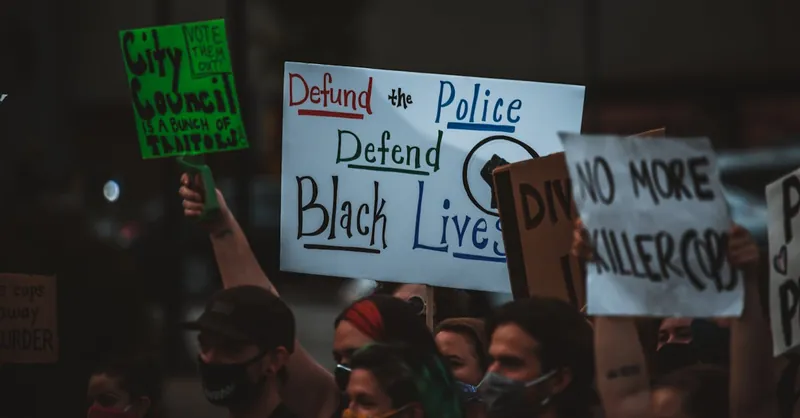
Image courtesy of Kelly
The Role of Media and Social Networks in Perpetuating the Karen Stereotype and White Privilege Discourse
Media outlets and social networks have played a pivotal role in shaping and amplifying the Karen stereotype, often sensationalizing incidents that involve entitlement and white privilege. While viral videos and headlines raise awareness about problematic behavior, the media’s tendency to oversimplify complex social dynamics can distort public understanding, reducing systemic issues to mere personality flaws or isolated events. This fragmentation risks obscuring the deeper realities of how white privilege functions within these encounters and how such behaviors are manifestations of broader racial and social inequities.
Sensationalism and Oversimplification in Media Coverage
-
Focus on Viral Moments Over Structural Context
Media coverage frequently highlights the most dramatic or confrontational footage involving Karens, emphasizing the outrageousness of individual incidents. However, this approach often neglects the systemic patterns of racial bias, entitlement, and institutional complicity that underpin these actions. The result is a spectacle that entertains or outrages but fails to educate viewers about why such behavior persists or how it harms marginalized communities. -
Reinforcement of Stereotypes and Polarization
Social media platforms encourage rapid sharing and reaction, which can amplify caricatured portrayals of Karens as merely “crazy” or “irrational.” This reductionist framing risks trivializing the role of white privilege as an enabling force. Instead of provoking critical reflection, it may reinforce defensive attitudes among viewers who identify with or fear being labeled as “Karens,” stalling meaningful dialogue about race and entitlement.
Impact on Public Understanding and Social Discourse
-
Eroding Nuanced Conversations: Simplistic media narratives often discourage deeper, intersectional conversations around race, class, and gender dynamics. Complex issues get flattened into good versus bad archetypes, missing opportunities to unpack how entitlement is embedded in social and institutional structures.
-
Creating Performative Activism: Viral Karen moments can spur widespread online outrage, but this sometimes manifests as performative responses detached from sustained efforts at cultural or policy change. Public attention shifts quickly to the next viral scandal, limiting long-term impact on systemic reform.
-
Shaping Perceptions of Accountability: When media coverage sensationalizes Karen incidents without addressing complicity within law enforcement, workplaces, or community systems, it can falsely suggest that calling out "Karens" alone is sufficient for justice. This overlooks the need for broader institutional accountability and dismantling of systemic racism.
Understanding the role media and social networks play in perpetuating and sometimes distorting the Karen stereotype is crucial for cultivating informed, empathetic perspectives. Recognizing these influences allows activists, educators, and engaged citizens to push beyond viral content and foster conversations grounded in systemic analysis and collective responsibility against white entitlement and privilege.

Image courtesy of Ivan Samkov
Real-Life Consequences of Karen Entitlement on Communities of Color
The entitlement exhibited by Karens fueled by white privilege does not exist in a vacuum—its impacts ripple far beyond viral video clips, imposing tangible and often devastating consequences on communities of color. These consequences range from emotional trauma to legal repercussions, and an alarming erosion of trust in public institutions designed to serve everyone equitably. Understanding these real-life harms underscores why confronting Karen behavior is essential for advancing social justice and racial equity.
Emotional Trauma and Psychological Impact
When individuals weaponize entitlement through microaggressions, public harassment, or baseless calls to law enforcement, the targets—often people of color—experience profound emotional distress and psychological harm. Being repeatedly subjected to suspicion, criminalization, or invalidation in everyday spaces fosters a hostile environment that damages:
- Mental health by inducing anxiety, fear, and hypervigilance.
- Sense of belonging in communities where they have every right to exist peacefully.
- Self-esteem and dignity, as public shaming or racial profiling reinforces feelings of invisibility and marginalization.
These cumulative micro-traumas contribute to broader social alienation and can exacerbate disparities in mental well-being across racial lines.
Legal and Safety Risks Amplified by Karen Complaints
One of the most dangerous manifestations of Karen entitlement lies in triggering legal consequences disproportionally targeting people of color. When seemingly trivial or fabricated disputes lead to police intervention, it exposes innocent individuals to potentially life-threatening encounters, unwarranted arrests, or criminal records. This dynamic perpetuates systemic racial disparities in:
- Criminal justice outcomes, where communities of color face heavier surveillance and harsher penalties.
- School disciplinary actions when “Karen-style” complaints escalate trivial student behavior into punishable infractions.
- Housing and employment opportunities, as encounters with law enforcement can damage reputations and access to stable resources.
The power imbalance Karens exploit amplifies existing institutional biases and reinforces cycles of systemic oppression.
Erosion of Trust in Public Institutions
Repeated Karen incidents contribute significantly to the widespread erosion of trust in public institutions like law enforcement, property management, and customer service systems—especially among marginalized communities. When these institutions respond disproportionately or fail to hold entitled complainants accountable, they signal tacit acceptance or enabling of racist entitlement. Consequences include:
- Heightened distrust and reluctance to engage with authorities, even in legitimate emergencies.
- Decreased faith in institutions meant to ensure safety and fairness, undermining societal cohesion.
- Perpetuation of a racialized double standard, alienating communities already burdened by historic discrimination.
This breakdown in trust obstructs constructive dialogue and cooperation necessary for effective community well-being and justice reform.
By spotlighting these real-life consequences—emotional trauma, legal risks, and institutional distrust—we underscore that Karen entitlement is not a trivial social annoyance but a serious social hazard. Addressing and dismantling the systemic frameworks that empower such behavior is critical to protecting vulnerable populations and fostering truly equitable communities.
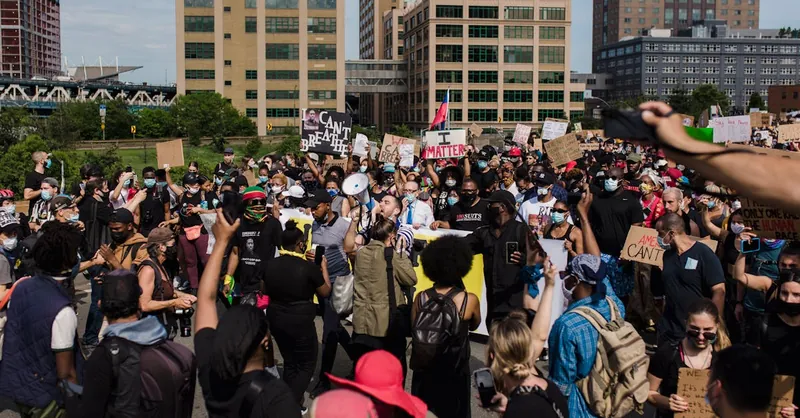
Image courtesy of Life Matters
Strategies for Addressing and Mitigating Karen Behavior Rooted in Privilege
Confronting the entitlement and disruptive behaviors exemplified by Karens requires intentional, practical strategies that target both individual awareness and broader institutional accountability. By recognizing how white privilege underpins these actions, individuals and organizations can move beyond reactive frustration to adopt constructive approaches that mitigate harm and promote equity. Effective intervention hinges on educating all parties about the systemic nature of entitlement while fostering environments where privilege is acknowledged and responsibly challenged.
Practical Approaches for Individuals
-
Cultivate Awareness and Empathy
Understanding how white privilege manifests through Karen-like entitlement is the first step. Individuals must learn to recognize their own biases and consider how seemingly minor behaviors contribute to systemic injustice. Practicing empathy encourages accountability and reduces unconscious perpetuation of entitlement. -
Use Constructive Confrontation
When witnessing Karen behavior, intervene thoughtfully by calling out entitlement without escalating conflict. Using facts, calm language, and social context helps de-escalate situations and educates bystander or perpetrator alike. This empowers communities to resist normalized patterns of privilege-driven disruption. -
Engage in Self-Education and Dialogue
Ongoing learning about racial justice, social dynamics, and systemic inequality equips individuals with the language and understanding to challenge entitlement behavior productively. Facilitated conversations in workplaces, schools, and social groups foster shared commitment to equity and reduce defensiveness.
Institutional and Organizational Responsibilities
-
Implement Anti-Bias and Privilege Training
Institutions should embed comprehensive training that addresses implicit bias, white privilege, and entitlement culture. Tailoring these programs to address real-world Karen scenarios prepares staff and leadership to recognize and intervene in ways that uphold justice rather than enable discrimination. -
Develop Clear Policies and Accountability Mechanisms
Establishing and enforcing policies that define unacceptable entitlement behaviors—especially around calls to law enforcement or discriminatory demands—creates standards that discourage Karen-like disruptions. Transparent reporting and disciplinary processes signal that privilege is not a shield from consequences. -
Promote Inclusive Practices and Representation
Enhancing diversity in decision-making roles and community engagement helps institutions better understand the impact of entitlement behaviors on marginalized groups. Inclusive perspectives foster environments where complaints rooted in privilege are critically examined rather than automatically prioritized.
By combining individual self-awareness with institutional commitment, these strategies work to interrupt entitlement cycles before they escalate into public harm. Addressing Karen behavior through the lens of white privilege is essential—not only to correct immediate injustices but to dismantle the cultural norms and systemic advantages that allow such disruptive entitlement to persist unchecked.
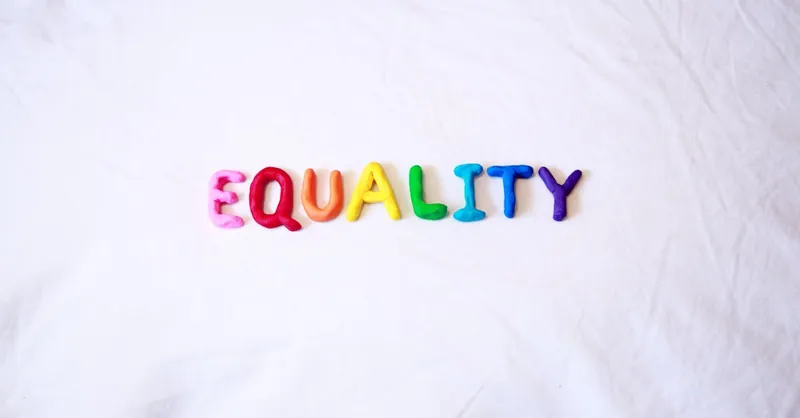
Image courtesy of Alexander Grey
Why Awareness Alone Isn’t Enough: Moving Beyond Labeling Toward Systemic Change
While raising awareness about Karen behavior and its ties to white privilege is a crucial first step, relying solely on labeling or meme culture to address these issues falls short of producing meaningful social change. The viral nature of Karen memes often reduces complex, systemic problems to simplistic caricatures, which can foster temporary outrage but rarely leads to sustained reflection or action. This superficial engagement risks obscuring the deeper, structural roots of entitlement and racial injustice embedded in societal institutions.
Limitations of Meme Culture in Addressing White Privilege
-
Oversimplification of Complex Issues
Memes distill nuanced realities into easily digestible, often humorous content that prioritizes virality over education. This simplification can trivialize the lived experiences of marginalized communities affected by white entitlement and systemic racism, making it easier for viewers to dismiss or misunderstand the severity of these dynamics. -
Fostering Performative Allyship
Social media sharing of Karen videos or jokes may generate momentary solidarity but can encourage performative activism—actions that look supportive on the surface without challenging underlying power structures. Such behavior stalls progress by focusing on individual offenders rather than the systemic inequalities that enable entitlement. -
Reinforcement of Defensive Reactions
The mockery and shaming prevalent in meme culture can entrench defensiveness among those labeled as “Karens,” complicating open dialogue and self-examination necessary for growth. This polarization inhibits productive conversations about white privilege and systemic oppression.
The Need for Deeper Engagement with Systemic Racism and Privilege
Moving beyond awareness requires confronting how entitlement behaviors are symptoms of entrenched institutional racism and social hierarchies, not merely individual failings. Lasting change demands:
- Critical education around historical and contemporary mechanisms of white privilege.
- Active participation in anti-racist practices that challenge norms, policies, and power imbalances.
- Intersectional approaches that address how race, class, and gender privilege interconnect in fueling entitlement.
Only through intentional, sustained efforts to dismantle systemic barriers—rather than relying on surface-level labeling—can society alter the cultural narratives that allow Karen-like behaviors to persist unchecked. Embracing this holistic approach enables allies and communities to move from reactive outrage to proactive justice, paving the way for equitable environments where white entitlement no longer dictates social dynamics.
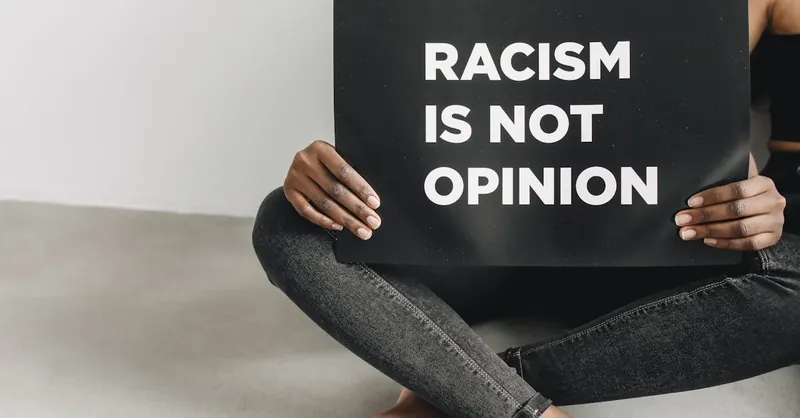
Image courtesy of Polina Tankilevitch
Empowering Bystanders: How Witnesses Can Effectively Intervene and Support Equity
Witnessing Karen behavior rooted in white privilege can be deeply unsettling, but bystanders hold critical power to transform moments of injustice into opportunities for education and systemic change. Effective intervention goes beyond passive observation—it requires intentional allyship, awareness, and a commitment to disrupting entitlement dynamics whenever they occur. By stepping in thoughtfully, witnesses can help dismantle the harmful patterns perpetuated by Karen entitlement and contribute to creating more equitable social environments.
Key Steps for Bystanders to Intervene Constructively
-
Recognize and Name Privilege and Entitlement
A crucial first step is acknowledging the root cause of the behavior—white privilege manifesting as entitlement—not just individual rudeness. Calling out how privilege fuels the disruption reframes the incident as part of systemic injustice rather than isolated conflict. -
Intervene Calmly and Clearly
Addressing Karen behavior requires de-escalation and clarity. Bystanders can use calm language to point out the unfairness or harm caused, focusing on the facts and the impact on marginalized individuals rather than attacking the person outright. This approach increases the likelihood of opening dialogue or stopping further harm. -
Support the Targeted Individuals
Allyship means validating the experiences of those unjustly subjected to entitlement. Offering verbal support, physically standing beside them, or helping to document the encounter empowers victims and signals community solidarity against systemic oppression. -
Leverage Institutional Channels Responsibly
When necessary, bystanders can help escalate incidents through appropriate institutional pathways—such as filing complaints or contacting supervisors—ensuring Karen behavior is met with accountability rather than enabling. However, this must be done cautiously to avoid redirecting power toward oppressive systems without critical scrutiny.
Raising Awareness and Promoting Long-Term Change
-
Educate Others Privately and Publicly
Sharing knowledge about the links between Karen actions, white privilege, and systemic injustice with friends, colleagues, and community members fosters broader cultural consciousness. These conversations can challenge normalized entitlement and encourage proactive anti-racist behaviors. -
Model Inclusive Behavior in Daily Life
Bystanders can become role models by consciously rejecting entitlement in their own interactions and advocating for fairness in everyday settings. Demonstrating respect and equity helps reshape social norms and counters entitlement culture. -
Engage in Collective Action
Joining or supporting organized movements and initiatives against racial injustice multiplies the impact beyond individual incidents. Collective efforts strengthen institutional reforms and cultural shifts necessary to dismantle privilege-based entitlement at its core.
By empowering bystanders with effective strategies to intervene and support equity, we harness the transformative potential of witnessing injustice. This active engagement not only disrupts immediate harm caused by Karen behavior but also contributes to dismantling the structural white privilege that enables entitlement to thrive in the first place.
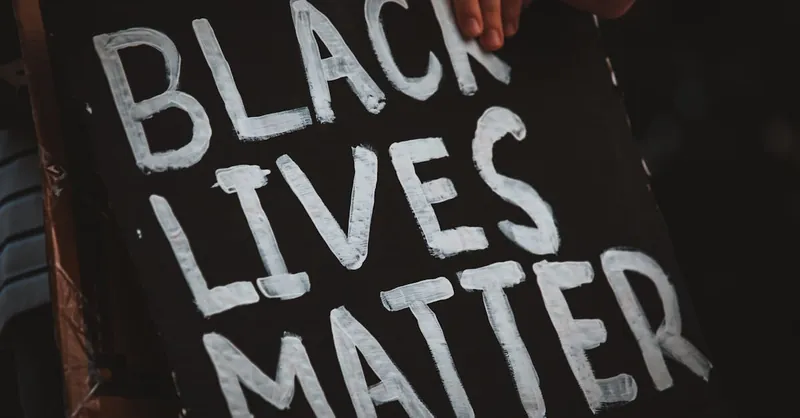
Image courtesy of Kelly
